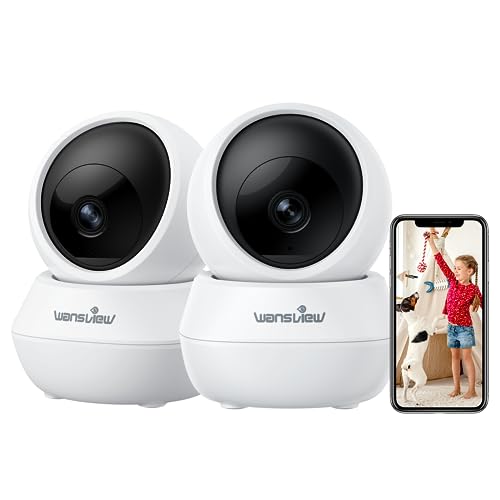
Have you ever wondered what goes on behind the closed doors of someone else’s iPhone camera? The world of hacking may seem daunting, but with the right knowledge and tools, you can uncover the hidden world of surveillance and espionage. In this article, we will delve into the intricacies of hacking into other people’s iPhone cameras and show you how to do it safely and discreetly.
Disclaimer: Before we proceed, it is important to note that hacking into someone else’s device without their consent is illegal and unethical. This article is for educational purposes only, and we do not condone any illegal activities. Proceed with caution and always respect others’ privacy.
With that said, if you are interested in learning more about the technical side of iPhone hacking and how to gain access to someone else’s camera, read on. We will explore different methods, tools, and techniques that hackers use to infiltrate iPhones and spy on unsuspecting individuals. Remember, knowledge is power, but it is crucial to use it responsibly and ethically.
Methods of Hacking iPhone Camera
There are various methods that hackers can use to gain access to an iPhone’s camera without the user’s knowledge. Some of the common techniques include:
Social Engineering
One method is to trick the iPhone user into clicking on a malicious link or downloading a compromised app that grants access to the camera. This can be done through phishing emails, fake notifications, or other social engineering tactics.
Exploiting Software Vulnerabilities
Hackers can also exploit security flaws in the iPhone’s operating system or camera app to gain unauthorized access to the camera. By exploiting vulnerabilities, hackers can bypass security measures and remotely activate the camera.
Risks and Consequences of iPhone Camera Hacking
While hacking into someone else’s iPhone camera may seem like a harmless or fun activity, it comes with significant risks and consequences that should not be ignored. Here are some of the potential dangers associated with iPhone camera hacking:
Privacy Invasion
One of the most serious consequences of hacking into someone’s iPhone camera is the invasion of privacy. By gaining unauthorized access to the camera, you are essentially peeking into someone else’s personal space without their consent. This can lead to serious violations of privacy and can have long-lasting effects on the victim’s mental and emotional well-being.
Legal Ramifications
Hacking into someone’s iPhone camera is not only unethical but also illegal. It is a violation of the person’s privacy and can result in criminal charges and legal action. If caught, you could face severe legal consequences, including fines, imprisonment, and a criminal record.
| Consequences | Risks |
|---|---|
| Invasion of privacy | Legal ramifications |
| Mental and emotional harm | Damaged relationships |
Legal Implications of Hacking Someone’s iPhone Camera
Hacking someone’s iPhone camera without their consent is a serious violation of privacy and is illegal in most jurisdictions. It is considered an invasion of privacy and can lead to criminal charges, fines, and even imprisonment.
Violation of Privacy Laws
Unauthorized access to someone’s iPhone camera violates privacy laws that protect individuals from being monitored or recorded without their knowledge or consent. This type of hacking is a clear violation of the individual’s right to privacy.
Potential Legal Consequences
If caught hacking someone’s iPhone camera, you could face criminal charges such as invasion of privacy, unauthorized access to a computer system, and illegal surveillance. These charges can result in severe penalties, including fines and jail time.
Protecting Your iPhone Camera from Hacking
In today’s digital age, protecting your privacy is more important than ever. With the advancement of technology, hackers have found ways to access and compromise smartphone cameras, including iPhones. To safeguard your iPhone camera from potential hacking attempts, follow these tips:
1. Keep Your iPhone Software Updated
Regularly updating your iPhone’s operating system is crucial for security. Apple frequently releases software updates that include patches for vulnerabilities that could be exploited by hackers. By keeping your iPhone software up to date, you can ensure that your device is protected against the latest threats.
2. Be Mindful of App Permissions
When installing new apps on your iPhone, pay attention to the permissions they request. Some apps may ask for access to your camera or microphone even when it’s unnecessary for their functionality. Limit the permissions you grant to apps and only allow access to essential features.
Additionally, review the permission settings for existing apps and revoke access to the camera for any apps that don’t require it.
By following these tips and staying vigilant, you can help protect your iPhone camera from potential hacking attempts and safeguard your privacy.
Ethical Considerations in iPhone Camera Hacking
When it comes to hacking into someone else’s iPhone camera, ethical considerations play a crucial role. It’s important to understand the ethical implications of such actions before attempting to access someone’s private device.
Respect for Privacy
One of the key ethical considerations is the respect for privacy. Hacking into someone’s iPhone camera without their consent is a violation of their privacy rights. It’s important to consider whether the potential benefits of accessing the camera outweigh the invasion of privacy.
Legal Ramifications
Another important ethical aspect to consider is the legal ramifications of hacking into someone’s iPhone camera. Unauthorized access to someone’s device can lead to serious legal consequences, including criminal charges. It’s crucial to stay within the boundaries of the law and consider the potential risks before engaging in such activities.
In conclusion, ethical considerations should always be at the forefront when contemplating hacking into someone else’s iPhone camera. It’s essential to respect privacy rights and consider the legal implications of such actions to ensure ethical behavior.






